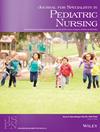A case-control study to investigate determinants of undernutrition in community-dwelling children
Abstract
Purpose
This study aimed to examine determinants of undernutrition among children under 2 years of age.
Design and Methods
A matched case-control study design was conducted to recruit 300 mothers comprising 100 mothers with an undernourished child (case group) and 200 mothers with a healthy child (control group). Measurements consisted of demographic characteristics of children data, mother's data, household data, mother's knowledge of child undernutrition, mother's knowledge of nutrition, complementary feeding practices, and undernutrition parameters of the children. A conditional logistic regression was used to identify determinants of undernutrition. The risk of undernutrition was estimated by odds ratios (ORs) and 95% confidence intervals (CIs). Statistical significance was defined as any p value of <.05.
Results
Findings showed that mother's knowledge of undernutrition (AOR: 0.95; 95% CI: 0.91−0.98), mother's knowledge of nutrition (AOR: 0.90; 95% CI: 0.85−0.96), and mother's knowledge (AOR: 0.78; 95% CI: 0.67−0.91) and behavior of complementary feeding practices (AOR: 0.97; 95% CI: 0.94−0.99) were significant determinants of undernutrition (p < .05).
Practice Implications
Mothers with high scores on knowledge of undernutrition, knowledge of nutrition, and knowledge and behaviors of complementary feeding practices would benefit the children under 2 years to reduce the risk of undernutrition. Healthcare professionals (i.e., pediatric nurses and community health nurses) should provide early assessment of knowledge related to undernutrition, nutrition, and complementary feeding practices for mothers with children under 2 years.

 求助内容:
求助内容: 应助结果提醒方式:
应助结果提醒方式:


